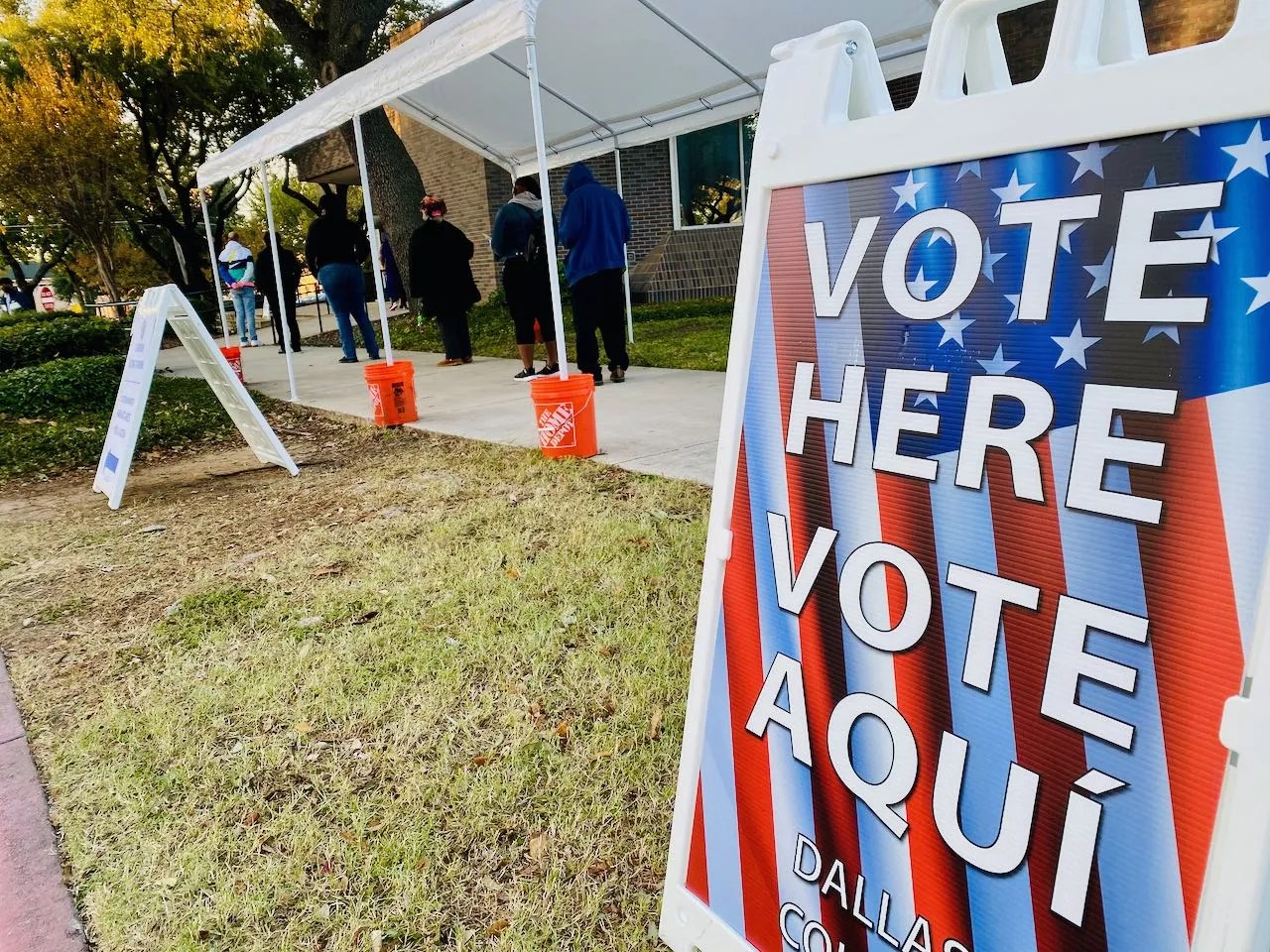
Lauren Drewes Daniels

Audio By Carbonatix
In Texas, Republican state lawmakers pushing widespread voting restrictions have found themselves at odds with a longtime friend: big business.
In recent weeks, a slate of companies have come out against the proposed voting restrictions included in several so-called election integrity bills, among them the controversial Senate Bill 7 and House Bill 6.
The condemnations follow a similar trend in Georgia, where similar voting restrictions became law earlier this year.
This week, more than two dozen companies, including Hewlett Packard and Microsoft, and several chambers of commerce have come out against the voting bills, which critics say amount to voter suppression measures, according to the Dallas Morning News.
Signees to the open letter include Patagonia, Levi Strauss & Co, GitHub and Etsy, among others.
The letter doesn’t mention specific legislation, but rights groups and voter advocacy outfits say SB 7 and HB 6 would most harm voters of color and those with disabilities.
“We believe that Texas elections should be convenient, transparent, and secure,” the letter opens.
“We stand together, as a nonpartisan coalition, calling on all elected leaders in Texas to support reforms that make democracy more accessible and oppose any changes that would restrict eligible voters’ access to the ballot,” write the businesses.
“We urge business and civic leaders to join us as we call upon lawmakers to uphold our ever elusive core democratic principle: equality,” the letter adds.
The letter concludes: “By supporting a stronger trustworthy democracy, we will elevate our economy.”
“We believe that Texas elections should be convenient, transparent, and secure.” – a coalition of businesses and chambers of commerce.
They aren’t the only ones speaking out against the bills, which were introduced after Texas Gov. Greg Abbott declared “election integrity” an emergency item ahead of this legislative session.
The tunnel-vision focus on supposed cases of voter fraud came after former President Donald Trump lost last November’s election to Democrat Joe Biden. In response, Republicans around Texas and beyond have claimed without evidence that the vote was rigged against Trump.
The state Senate passed SB 7. If it becomes law, SB 7 will restrict how and when voters can cast their ballots, bar drive-thru voting and forbid election administrators from distributing mail-in voting applications, among other provisions.
HB 6, on the other hand, would restrict election administrators in how much they can do to prevent “illegal disruptions,” according to the Brennan Center for Justice. The bill would also empower election watchers to film or photograph voters they claim are engaged in some sort of fraud, a provision rights groups say amounts to voter intimidation.
Last month, Texas-based companies, including Dell and American Airlines, criticized voter restrictions. “To make American’s stance clear: We are strongly opposed to this bill and others like it,” American Airlines said in a statement at the time.
Lt. Gov. Dan Patrick responded by lashing out at American Airlines, calling the company a “nest of liars.”
Experts insist that voter fraud is uncommon. The Brennan Center for Justice says “extensive research” suggests it’s “very rare,” while “voter impersonation is virtually nonexistent, and many instances of alleged fraud are, in fact, mistakes by voters or administrators.”
But that hasn’t stopped Texas Republicans from drumming up fears of supposed voter fraud. Gov. Abbott has claimed that election integrity in the state is in peril. Texas Attorney General Ken Paxton tried – and failed – to reverse last year’s election results through lawsuits.
As of late March, some 47 state legislatures nationwide were considering more than 360 bills that include restrictions on voting, according to the Brennan Center.